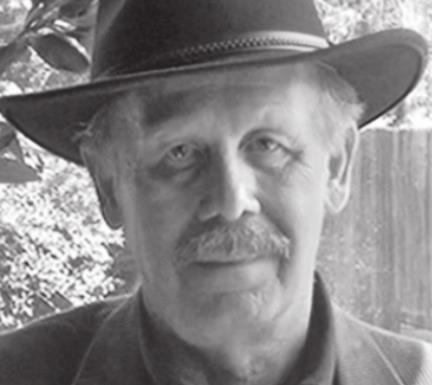Andrew Jackson Donelson crossed Feb. 5 off his 1846 calendar and made a mental note that his historic work in the Lone Star Republic would be finished in two more weeks.
The fourth and final Washington emissary to Texas was not the least bit worried about the annexation ceremony happening on schedule. It was purely a formality marking the death of the decade-old Republic and the birth of the 28th state.
What kept Donelson awake at night was whether he would accomplish something none of his three predecessors had managed to do - get out of Texas alive.
Considering the shabby way Washington treated them after San Jacinto, Texans could have been excused for wishing a pox on Potomac politicians. The United States refused for nearly a year to officially recognize their independence from Mexico and then delayed full diplomatic relations until 1841.
In April of that year, President William Henry Harrison awarded a prominent supporter from Kentucky the post of charge d’affaires to Texas. On the job by July, Joseph Eve immediately hit it off with Sam Houston, for whom he had the highest regard.
Eve’s glowing accounts of life in the vast land and his enthusiastic recommendation of statehood for Texas upset Daniel Webster, who as secretary of state was committed to keeping slaveholders out of the Union. Convinced Eve had been corrupted by the charismatic Houston, Webster recalled him in the spring of 1843.
Replaced Jun. 3, Eve reluctantly packed for the trip home. But two weeks later he suddenly collapsed and died in Galveston, his life cut short by an incurable case of tuberculosis.
In the meantime, Eve’s successor had already filed the first of many fanciful reports about the Texans’ tilt toward Great Britain. William S. Murphy was, in fact, on Lone Star soil less than 48 hours before jumping to the rash conclusion that the country was in grave danger of becoming a crown colony.
To renew U.S. interest in the adoption of his orphan republic, President Houston played hard to get. He pretended to be opposed to annexation and openly flirted with England, America’s old Atlantic rival.
Murphy was completely fooled by Old Sam’s masterful masquerade. The naïve envoy advised his superiors that only swift and decisive action could break up the budding international romance. Otherwise, he warned, Texas was sure to slip through their fingers.
Though skeptical at first, the new secretary of state eventually came around to Murphy’s point of view. Abel Upshur ordered his subordinate to tell the reckless Texans that “the lamb can make no contact with the wolf which will protect him from being devoured.”
Murphy interpreted these and other oblique instructions to mean he had a free hand in his dealings with the Texans. Hearing that Houston feared a Mexican invasion once negotiations with Washington resumed, he exceeded his authority by promising military protection for the duration of the unification process.
Requiring a two-thirds vote of the U.S. Senate, the annexation treaty was dead on arrival in April 1844. In turning thumbsdown on the agreement, the senators also refused to confirm Murphy’s appointment as charge d’affaires. Upon learning his career had gone up in smoke along with the treaty, he quipped, “The tail went with the hide.”
John Tyler, the first vice-president to succeed a dead president, picked a nobody from Indiana to take Murphy’s place. Although spurned by the Hoosier electorate in recent bids for the senate and the statehouse, Tilghman A. Howard had one redeeming qualification. He was an old friend of Sam Houston.
In June 1844, Howard took over from Murphy, who like Eve before him did not live long enough to leave. He died Jul. 12 following a brief battle with yellow fever.
Murphy was scarcely six feet under before the same scourge sent his successor to the cemetery. After Howard’s death at Washington-on-the-Brazos Aug. 16, Texans wondered if the president would risk filling the vacancy.
That sensible observation overlooked the fact that the cornerstone of the Tyler candidacy had been a solemn promise to bring the Lone Star Republic into the national fold, a goal that could not be achieved through the mail. The task demanded hands-on diplomacy no matter what the health hazards.
Tyler drafted Andrew Jackson Donelson, Old Hickory’s nephew and adopted son who had spent eight years in the White House as private secretary to his namesake. Any misgivings Donelson may have had about the perilous post he kept to himself and cheerfully accepted the assignment in September 1844.
The fourth and final charge d’affaires not only endured his dangerous tour of duty but also was instrumental in ending Texas’ inexcusably long wait for statehood. While Donelson appreciated all the praise for a job well done, he was even happier to survive the strange “curse of the diplomats.”


